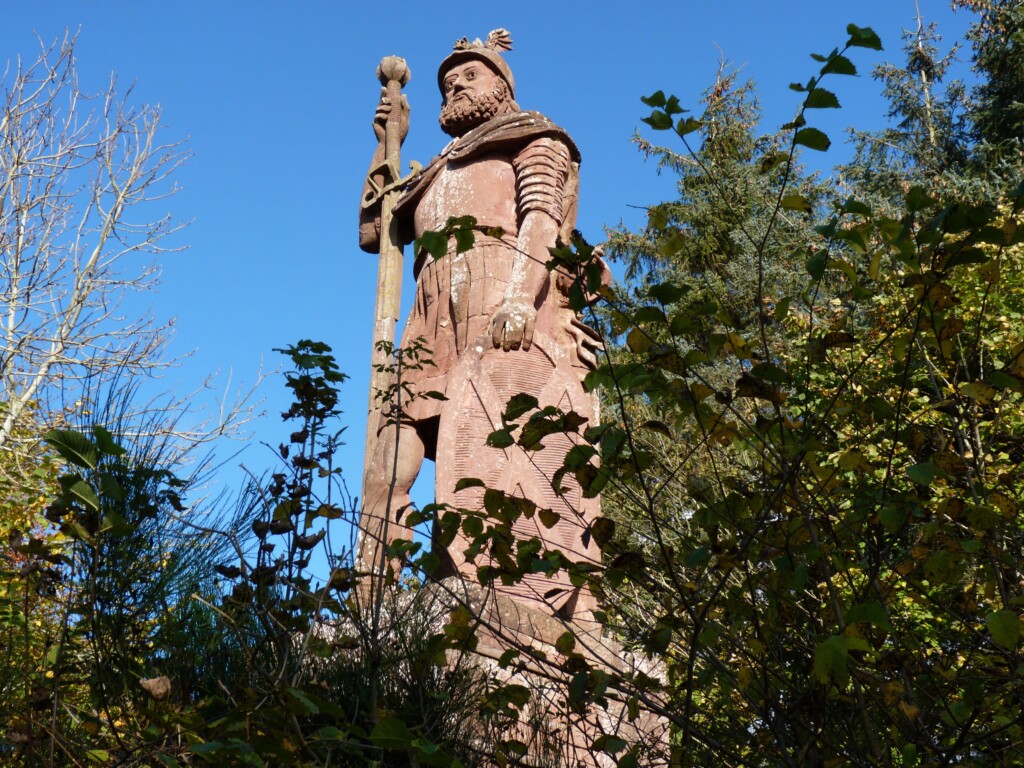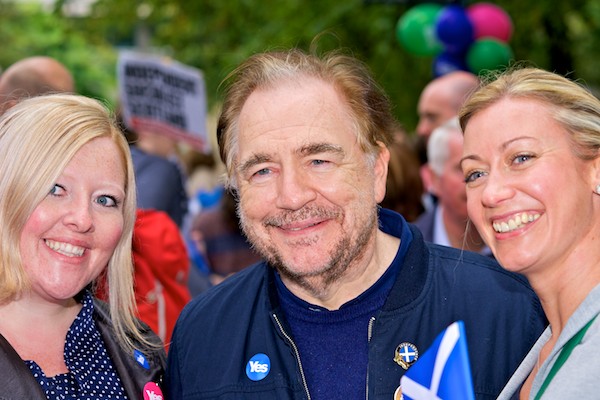Letter from Scotland
We’ve spent much of this week looking back over the 10 years since the independence referendum on 18 September 2014. Despite a clear result on the day – 45 per cent for independence, 55 per cent for remaining in the United Kingdom – Scotland is now even more evenly divided over the issue.
Leafing through my own diary of those exciting times, two phrases leap out at me; “The dream will never die” and “We will hold Westminster’s feet to the fire over its promise of more devolution.” They were both in Alex Salmond’s resignation speech in the immediate aftermath of the result. And, to Scotland’s credit, the result was graciously accepted by both sides – though there were scuffles between demonstrators in Glasgow and it took a service of reconciliation at St Giles in Edinburgh for calm to settle upon the nation again.

I wrote at the time: “The campaign has set the political heather on fire, re-invented the public meeting and discussion of political matters in homes, colleges and work-places. Never have so many Saltire flags been flown. It has lifted the turnout at elections from the usual 60 per cent to 85 per cent and swelled support for independence from 30 per cent to 45 per cent. In the last week it has even engaged the London media and the Westminster political class.”
An opinion poll putting independence ahead spread panic in London and political leaders from all sides rushed to Scotland to make a joint “vow” to grant more powers to the Scottish Parliament. It’s what saved the Union because that is what most voters wanted all along. It was only the arrogance of the Westminster parties which prevented devolution-plus being on the ballot paper.
A lot of water has flowed under the bridge in the ten years since. Yes, further powers were given the Scottish Parliament, over tax and welfare, by the Smith Commission. But the SNP has continued in government, winning election after election – until the stumble this year, when the SNP lost most of its MPs in the general election which returned Labour to power at Westminster. Nicola Sturgeon took over as first minister and undisputed leader of the SNP, leading the country through the Brexit years and the Covid pandemic.
Now she has fallen from grace (unfairly in my view) and Alex Salmond has become the nation’s embittered old uncle, leaving the SNP to form his own independence-now party. Meanwhile the current first minister John Swinney has used the 10th anniversary and the SNP recent losses, to signal that independence is going to take some time. “The SNP,” he said, “need to prove that independence is the solution to the immediate concerns of the Scottish people.”
As for Labour and the Conservatives, they have done little in the last ten years except use the independence issue to bash the SNP. They are now struggling to find other policies to talk about. Both, I’m sure, must find it awkward working with their English counterparts – Labour because of Sir Keir Starmer’s caution and the Conservatives because of the 14 years of Westminster madness.
The euphoria of the independence referendum campaign followed Glasgow’s successful staging of the Commonwealth Games earlier that summer. And it’s curious how the two events are intertwined. Indeed the chairman of the organising committee of the Games, Lord Smith of Kelvin, was the man brought in to lead the commission on further devolution to Scotland. And this week, we learned that Glasgow is to stage the Commonwealth Games again, in 2026.
It’s going to be a scaled-down games with only 10 sports and four venues, all of which already exist. But it’s an event that may well save the whole concept of the Commonwealth Games. It looked as if there would be no future games after the city of Victoria in Australia suddenly withdrew its offer to host them in 2026. However, with the promise of £100m from the Commonwealth Games Federation and another £14m from the Australian government and the British government, the City of Glasgow and the Scottish government have decided to rescue the games.
The last Glasgow Games had a budget of £500m but it’s hoped the smaller format will encourage other cities, in new countries, to host the games in future. It may be that the Commonwealth Games will be crowded out of the sports calendar by all the other championships now being held, from each sport’s world championships, to regional competitions, to the Olympic Games.
The question now being asked is: without the public face of the Games, should the Commonwealth itself survive ? It’s other work on promoting democracy , human rights, the rule of law, and, more recently, the environment, overlaps with the United Nations. Maybe, people are asking, is it time to let the Commonwealth and its Games retire into the post-colonial sunset ? Glasgow may hold the answer.
